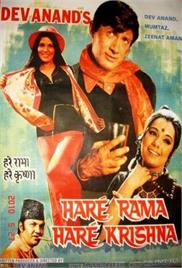Be Careful of Fake Websites. Always use HindiMovies.to domain & Join our Telegram Channel for Latest Updates.

Likes: 7
Views: 2.31K
In the background of the rise of the International Hare Krishna movement in the 1970s, is a Montreal-based family of the Jaiswals, consisting of mom, dad, son, Prashant, and daughter, Jasbir. Due to irreconciable differences between Mr and Mrs Jaiswal, they separate, leaving Jasbir with dad, and Prashant with his mom. Eventually Prashant and his mom travel to India, leaving father and daughter behind in Montreal. Mr. Jaiswal re-marries, and brings his new wife to live in his home. Years later, Prashant has grown up to be a pilot. He has received a letter from his dad that Jasbir, who had rebelled and left home, is now located in Kathmandu, Nepal, with a group of hippies. Prashant undertakes to find his sister and hopefully get her back to the family. When Prashant lands in Kathmandu he does not find Jasbir, but instead finds Janice, who is indeed his sister with a new name. Janice has no recollection of her childhood, and is always in the company of fellow-hippies. Prashant now needs to bring Jasbir back, but for that he will have to travel deep into the drug induced dark world of Janice.
Duration: 149 min
Released: 1971
IMDb Rating: 7.4/10 (499 Votes)
Genre: Drama, Family, Hindi Movies, Musical
Stars: Dev Anand, Mumtaz, Zeenat Aman, Baby Guddi
Directors: Dev Anand
Writers: Dev Anand
Year: 1971
Server 1 – Openload
Server 2 – Vidto
Server 3 – Streamin
Haré Rama Haré Krishna (1971): A Cinematic Journey into Hippie Culture and Familial Bonds
Introduction
Released in 1971, Haré Rama Haré Krishna is a remarkable Bollywood film that delves into the complex dynamics of family, youth rebellion, and the hippie culture of the era. Directed by the legendary Dev Anand, who also plays the lead role, this film has carved its niche as a memorable drama interspersed with captivating musical moments. The screenplay and story were crafted with deep sensitivity to the changing social fabric and emotive human relationships, making it one of the iconic films of Hindi cinema.
Plot Synopsis
The narrative centers on a beautiful family drama touched by tragedy and the pursuit of identity against the backdrop of the hippie movement. Prashant (played by Dev Anand) is a loving elder brother who embarks on a mission to find his long-lost sister, Jasbir, also known as Janice (played by Zeenat Aman). Separated from each other during their childhood due to family circumstances, their lives take dramatically divergent paths.
Janice finds herself immersed in the counterculture of the hippie movement in Kathmandu, Nepal. Adopting the lifestyles associated with this era—free love, drug use, and a spiritual quest—she embodies the youthful rebellion of the times. Meanwhile, Prashant is deeply concerned about her welfare and determined to bring her back into the fold.
Through his search, the film exposes audiences to the vibrant yet tumultuous interactions between traditional values and the rising countercultural revolution of the early 70s. The emotional core of the story is the fraternity between siblings and the societal divide that challenges their reunion.
Main Cast and Their Performances
Direction and Writing
Dev Anand, one of India’s most celebrated filmmakers and actors, not only directed but also starred in this film, showcasing his multifaceted talent. Anand’s direction captures the essence of both Mumbai and Kathmandu, reflecting the stark contrast between conservative Indian society and the liberal hippie enclaves. His nuanced storytelling conveys the emotional and cultural conflicts with sensitivity and clarity.
The screenplay effectively integrates drama with musical elements, weaving the social message seamlessly alongside character development. The writing reflects a deep understanding of the cultural shifts during the era, illustrating not just a family’s ordeal but also a snapshot of a generation caught between tradition and modernity.
Music and Songs
Since Haré Rama Haré Krishna is categorized under the musical genre, it boasts a memorable soundtrack which played an integral role in popularizing the film.
The music was composed by the maestro R.D. Burman, whose tunes perfectly complement the youthful yet poignant mood of the movie. The songs blend Indian classical music with Western influences, mirroring the film’s thematic treatment of cultural amalgamation.
The soundtrack was pivotal not only in enhancing the narrative but also in influencing Indian pop culture. The musical numbers are well integrated into the storyline, adding emotional depth and cultural context.
Cultural and Cinematic Significance
Haré Rama Haré Krishna was one of the first Bollywood films to tackle the hippie movement and its influence on Indian youth. The film’s realistic depiction of alienation, drug use, and the search for identity was both bold and pathbreaking for its time.
Zeenat Aman’s role challenged the conventional portrayal of female characters in Hindi cinema. Her stylish, independent, and nuanced performance opened new paradigms for actresses and filmmakers alike.
Moreover, Dev Anand’s direction offered a social commentary on family values and generational conflicts, capturing the heart of a changing India during the early 1970s.
Conclusion
Haré Rama Haré Krishna remains a landmark film in Bollywood history, loved for its storytelling, performances, and unforgettable music. It transcends mere entertainment to explore themes of cultural conflict, familial love, and the quest for self amidst the fervor of a global youth movement. With compelling performances by Dev Anand and Zeenat Aman, expert direction, and soulful music by R.D. Burman, the film continues to resonate with audiences and is a must-watch for lovers of Indian cinema history.